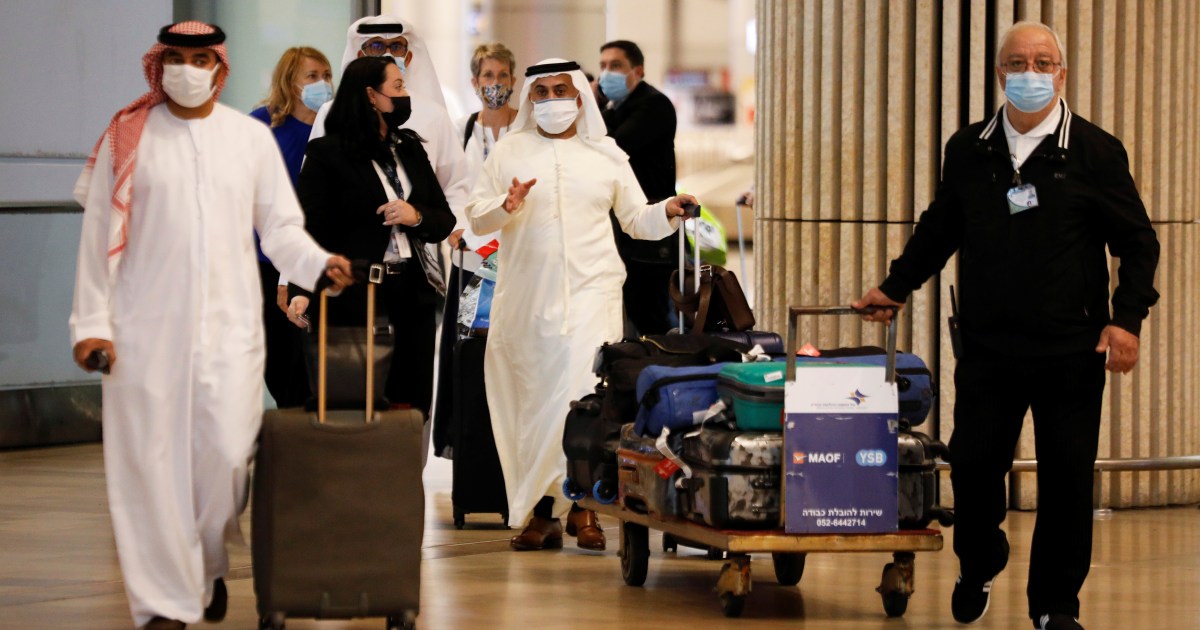The Israeli Ministry of Tourism advised workers in the tourism sector and businessmen to avoid going into three matters when talking to tourists from the Emirates, with the launch of the first commercial flights between Tel Aviv and Dubai a week ago, in order to activate the agreement to normalize relations between the two sides, which was concluded last September.
"The UAE is not a democratic country, and it is unacceptable to talk in it about democracy as the ideal model for governance," she said in a 29-page Hebrew advisory document.
She added that workers in the tourism sector are also encouraged not to go into conflict with the Emiratis about the ruling families in their country, and about government policies adopted in the Emirates, including how to deal with foreign workers.
The US National Public Radio (NPR) website stated in a report that the Ministry of Tourism has warned that the document, which deals with travel guidelines to the UAE, is not part of the Israeli government’s policy, but rather directives on cultural sensitivities, targeting workers in Israeli tourism companies. Who are preparing to receive Emirati tourists when restrictions imposed on tourism due to the outbreak of the Coronavirus pandemic are lifted.
The Israeli Ministry of Tourism issued a 29-page leaflet on how Israeli tourists deal with citizens in the UAE, in which it stated: The
UAE is not a democracy, so it does not prefer to talk to Emiratis about freedoms, democracies and the rights of foreign workers .. pic.twitter.com/KpLa4ax7Ea
- Ahmad_Alyehri (@Ahmad_Alyehri) December 2, 2020
Praise the Emirates
On the other hand, the Ministry of Tourism recommended paying attention to "the UAE's achievements in the Middle East" and using the phrase "empowering women" instead of "feminism."
"NPR" indicates that the UAE Foreign Ministry did not respond to his request for comment on the contents of the Israeli tourism document.
The author of the Israeli recommendations document, Yossi Mann, says that the Emiratis are wary of ineffective political systems and failed democratic movements, and prefer a tribal system of government, and they are also sensitive to addressing political issues that may cast doubt on the normalization agreement between Tel Aviv and Abu Dhabi.
Mann is a researcher in Middle Eastern studies at Bar-Ilan University in Israel, as well as the interdisciplinary center of Herzliya.

